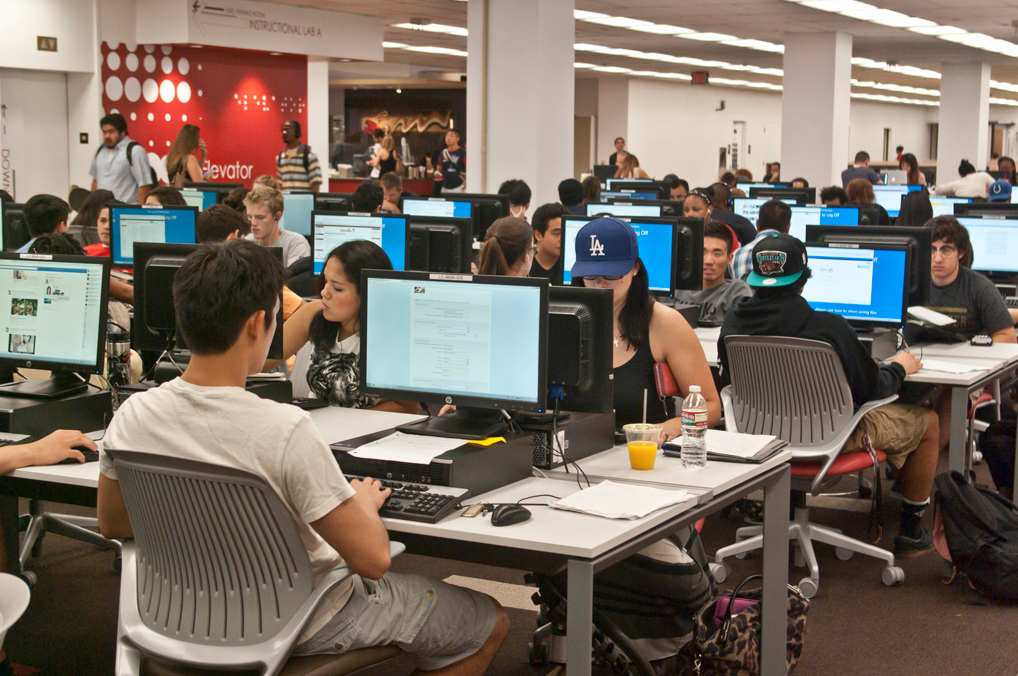The following is a statement of the California State University Council of Library Deans:
The twenty-three libraries serving nearly 500,000 students and scholars at California State University’s diverse campuses are firmly committed to their mission of providing equitable access to academic and professional information resources to every student and scholar. We are equally committed to the principle of responsible stewardship of the public funds entrusted to us to meet our mission of service to these students and scholars.
It is therefore with deep regret that we share the news with our colleagues and the students and faculty we serve, that on December 19, 2014, we made the decision not to continue, as a system, to provide system-wide access to a collection of over 1300 electronic journals published by a major publisher of scholarly and professional journals, John Wiley and Company.
We were unable to reach an agreement with Wiley and Company that met our fundamental goal of providing equitable access to information across all 23 campuses. The terms offered to the CSU by Wiley and Company would have cost more than many of our campuses could afford. This meant that several campuses would be forced to cancel their subscriptions, and that these campuses’ share of the total package costs would be remanded to other campuses. This was not acceptable to us.
As well, we were unable to reach an agreement with Wiley that met our responsibility for careful stewardship of limited public funds. The terms offered by Wiley and Company would have meant a cost increase of 10-12% across the CSU system: nearly double the average reported 2014 journal inflation rates reported by Library Journal in 2014. While Wiley and Company offered access to additional content as part of their terms, the CSU libraries did not find the value of the additional content compelling. Our records showed that most of this additional content was unneeded and seldom-consulted.
The CSU libraries offered to maintain their system-wide license with a smaller package of several hundred electronic journals that would have met both these core principles: equitable access, and responsible stewardship. This offer was rejected by Wiley and Company.
While we were unable to reach an agreement with Wiley and Company to implement this smaller package license at this time, we remain hopeful that we can reach agreement with Wiley and Company by or before January 2016 to license a smaller number of journals that have been determined to be of the most importance to students and scholars in the CSU system, based on data analysis and close consultation with CSU faculty and scholars.
The CSU is not the first university library system that has chosen to reduce the number of low-use journal subscriptions provided to their students and scholars through “big deal” journal packages.
Others have also chosen this path, and in the process retained access to journals where the need is greater, while also retaining the flexibility to add or remove titles based on the scholarly needs of their campuses.
Among the universities that have adopted this strategy are Harvard University; the University of Minnesota; the University of Oregon; Oregon State University; Southern Illinois University at Carbondale; California Institute of Technology; Massachusetts Institute of Technology; Purdue University; and University of Kansas (Bergstrom et al. 2014; Nable and Fowler, 2011).
The CSU libraries network will be working closely with one another throughout 2015 to support every campus in its transition. We remain committed to working together to provide the highest quality information resources to all our students and faculty, at a reasonable price. Each campus library is also developing an interim strategy to best support the needs of their campus in 2015.
The CSU libraries understand that all scholars and faculty, as well as students and academic leaders, have crucial roles to play both as producers and consumers of scholarly information. Their research, advocacy, and initiative are vital in seeking and supporting sustainable paths for scholarly publishing that do not result in a world of scholarly haves and have-nots; and that do not result in their libraries spending scarce public resources on products that do not benefit their students and faculty.
For more information about the costs to libraries of scholarly publications: Library Journal, Periodicals Price Survey, 2014
For more information about “big deal” journal bundling:
Campus statements:
; ?>)
